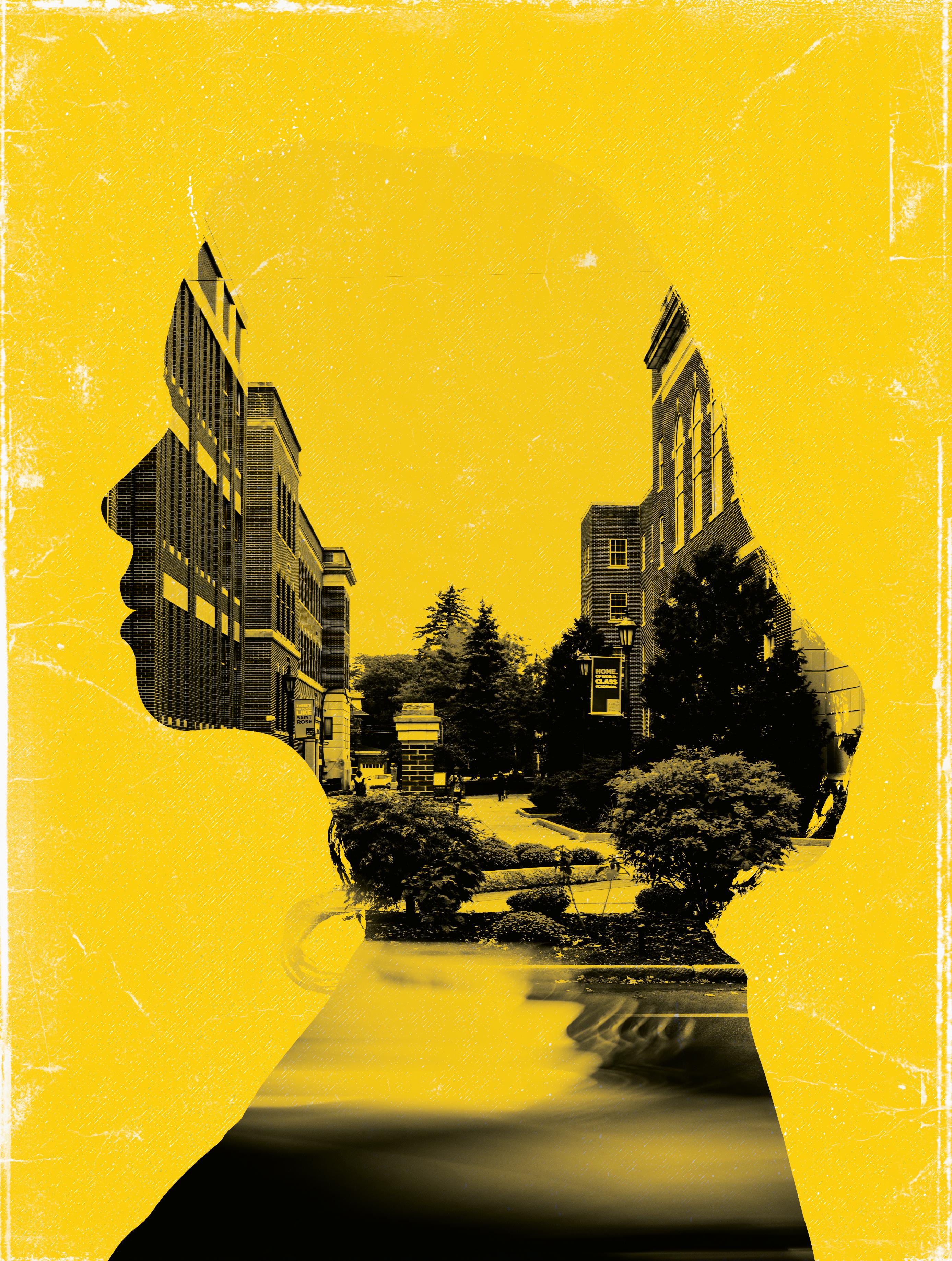
NO PLACE LIKE SAINT ROSE.
PSYCHOLOGY, SOCIAL WORK, AND FORENSIC PSYCHOLOGY PROGRAMS THERE’S
Take a deep dive into our psychology, social work, and forensic psychology programs

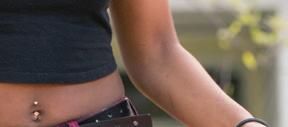



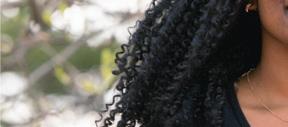
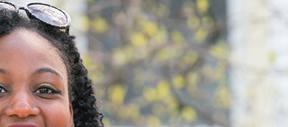

If you have a heart for people, check out our programs in psychology, social work, and forensic psychology. These programs are all about a Theory in Action approach to learning, where you’ll learn by doing – whether that’s social work fieldwork, an internship in our Cold Case Analysis Center, or undergraduate research alongside a professor that you could present at professional conferences or publish in academic journals.
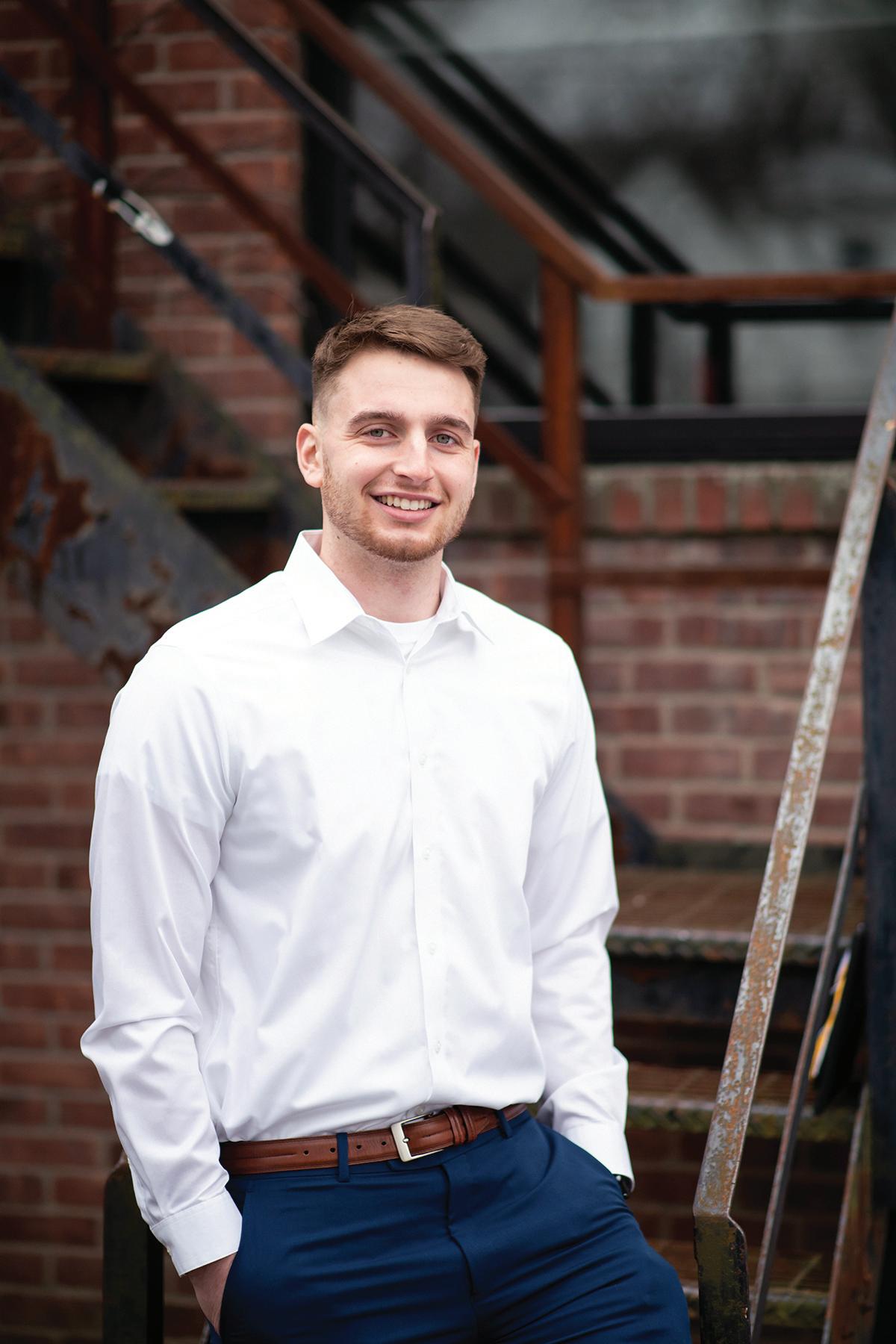
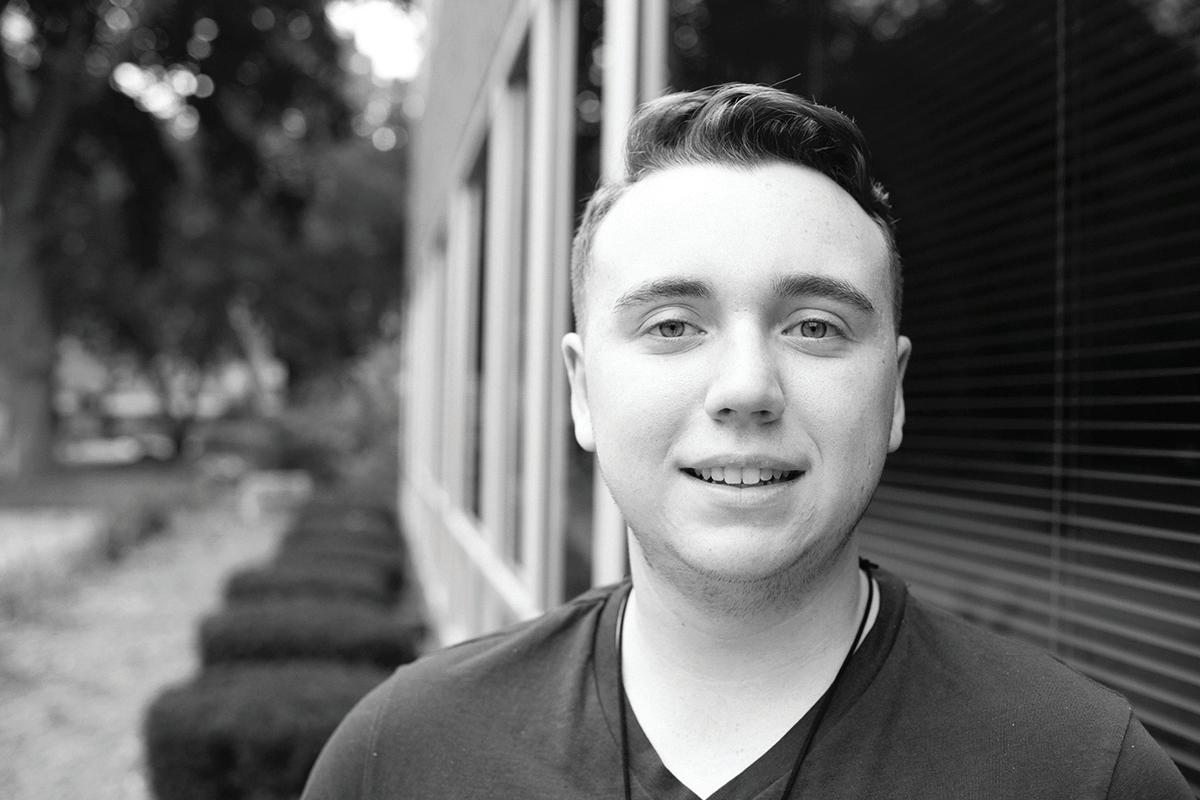
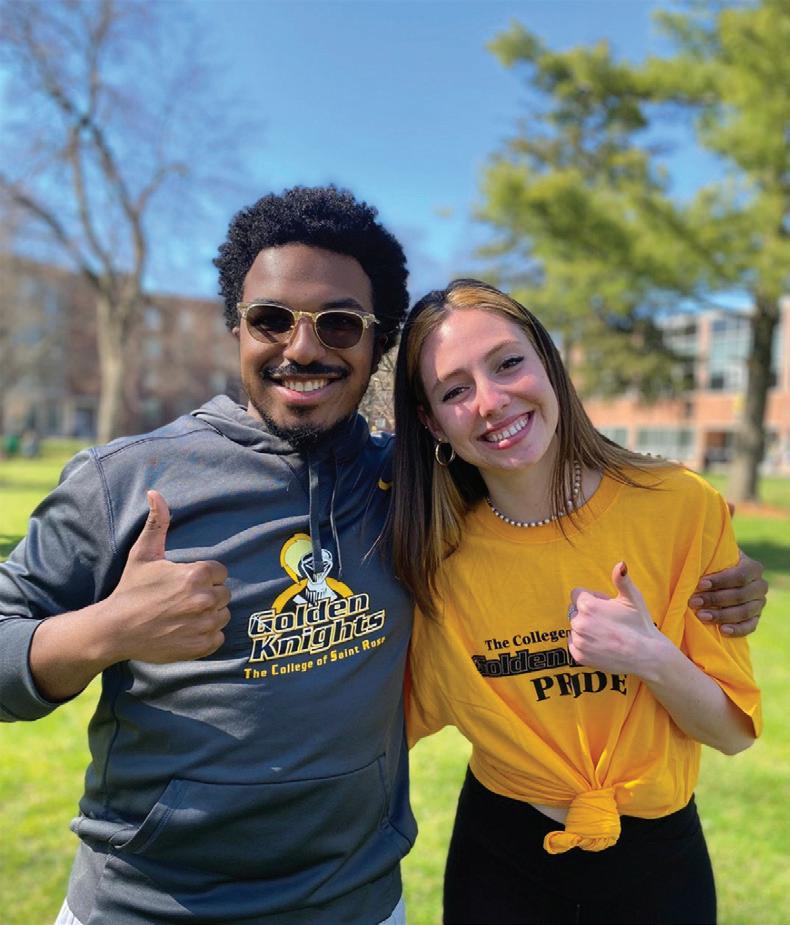
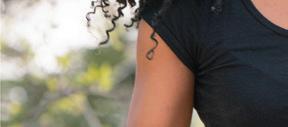
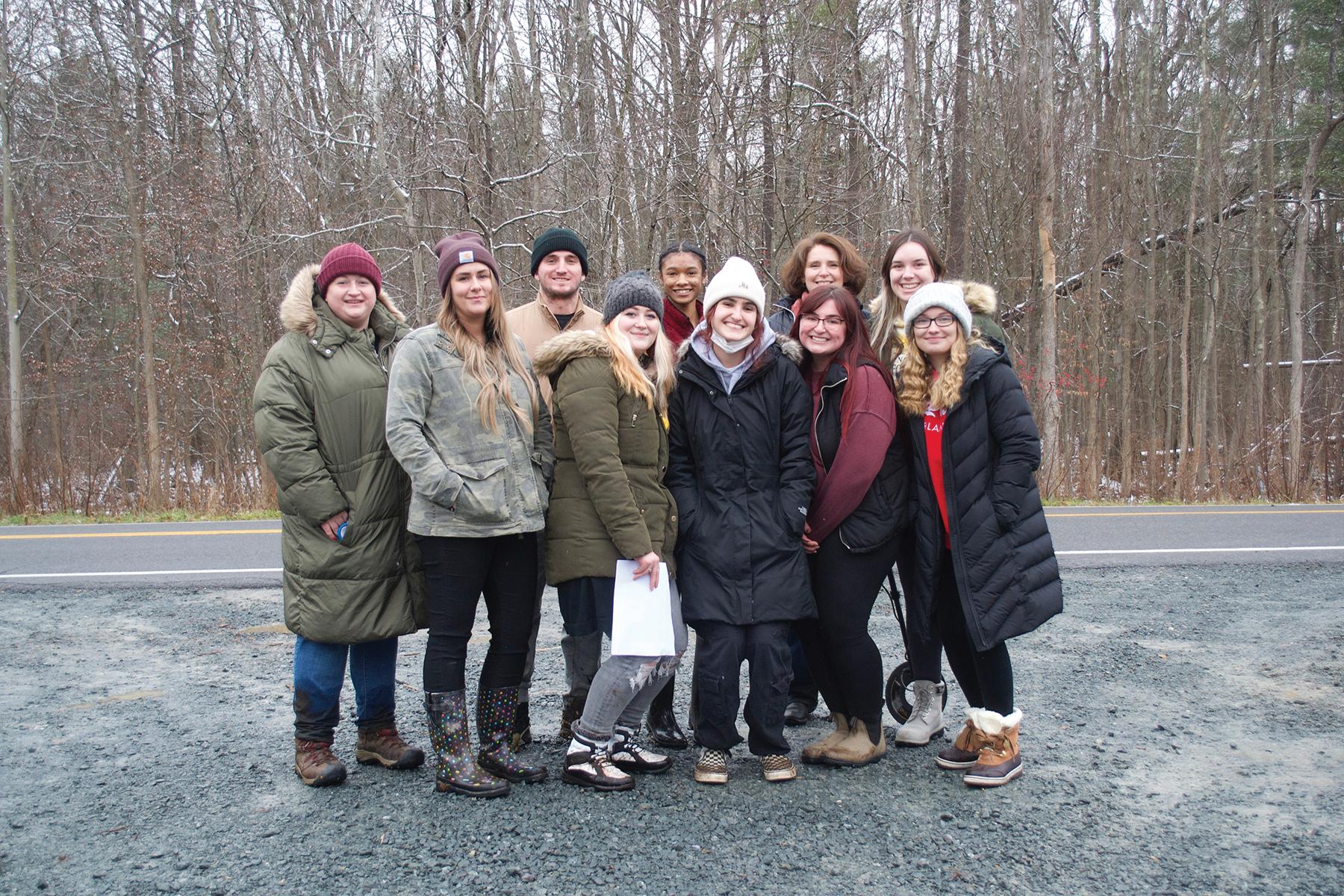
www.strose.edu
“Having the opportunity to do field placements in the spring semester of junior year and senior year allows me to grow and improve in order to become a successful social worker. Also, the way our professors teach us is by learning to apply the skills that we learn in our social work courses and how to apply our NASW code of ethics when working with patients and families. Another way our social work program is beneficial is by requiring students to do volunteer work. It has helped me build both my networking and leadership skills. Lastly, the way the social work program at Saint Rose is constructed allows students to want to continue to further their education in receiving a master's degree.”
LAURA URIBE ’24 Social work student
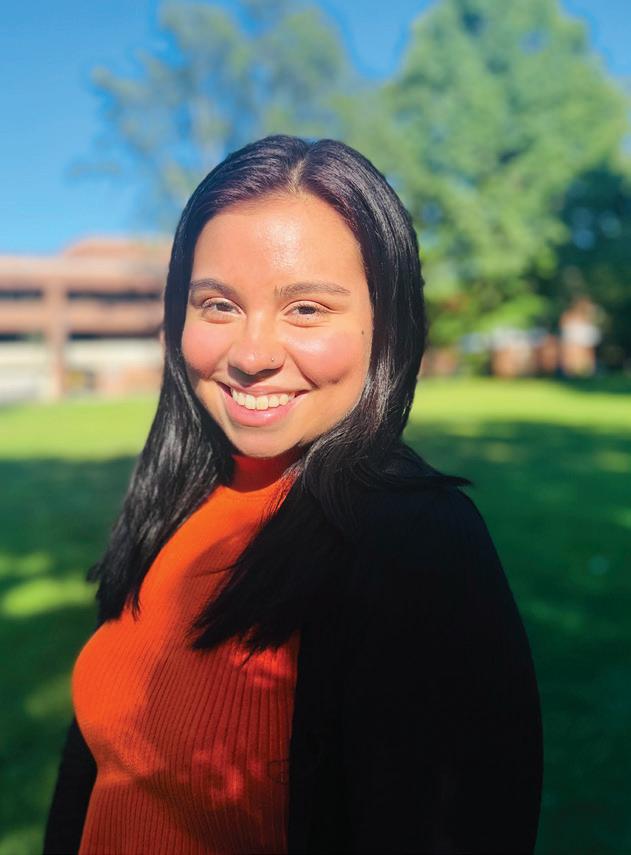
“
Being a part of the forensic psychology program at The College of Saint Rose is a fulfilling experience that has utterly shaped my future. Before pursuing my undergraduate education, I was uncertain how I could merge my passion for psychology and criminal justice. I was intimidated by the idea that choosing one of these academic majors would consequently result in missing out on the other. The inclusion of a forensic psychology major ultimately shaped my perception of The College of Saint Rose as the perfect institution to call ‘HOME’ for the next four years. Not only is it thrilling to take some of the best criminal justice courses throughout my college career, but I also get to fuse them with some amazing psychology courses, and it is the combination of the two that make me feel like such a versatile candidate for my career.”

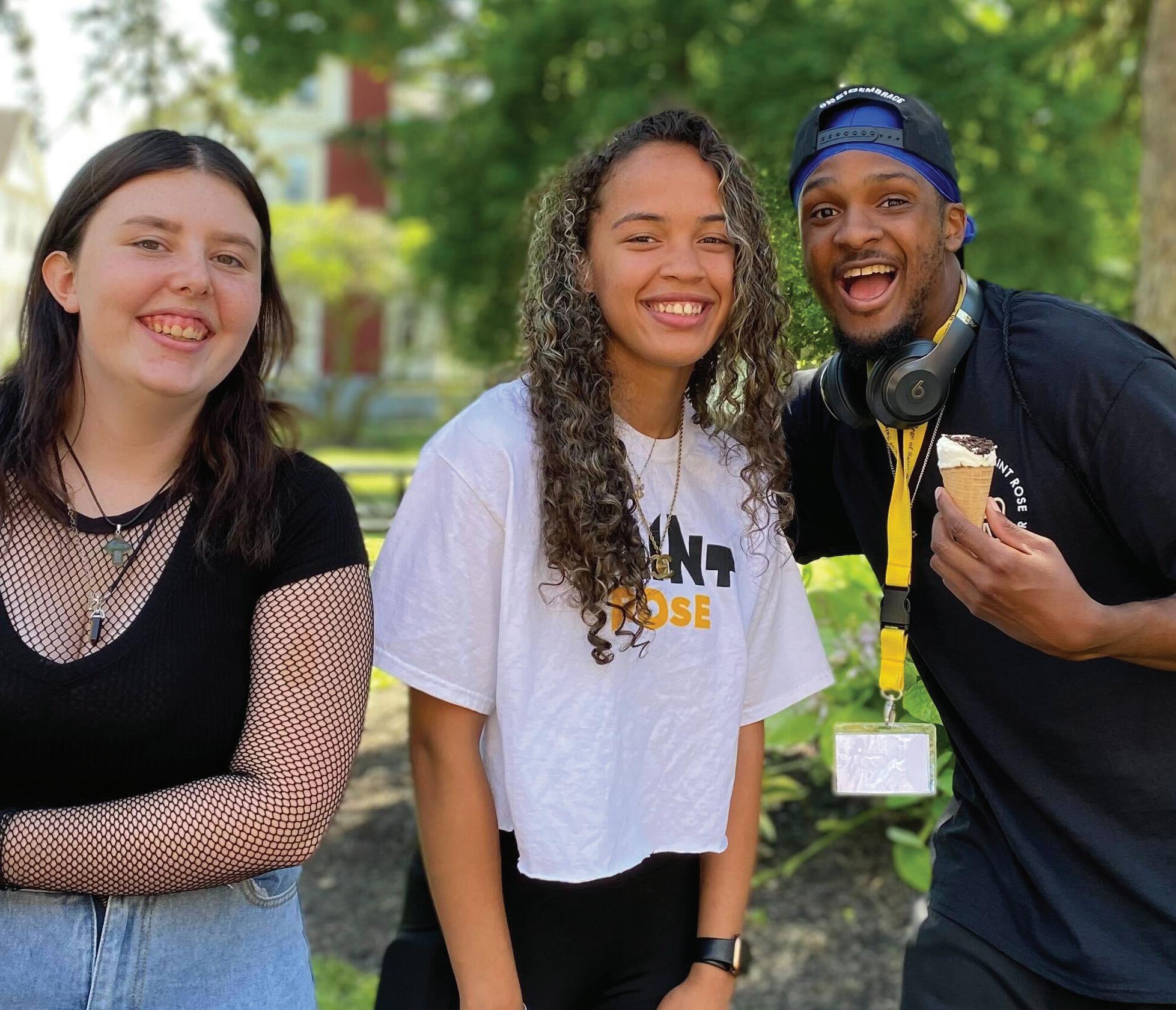 GLESAIDYS EVE ’23 Forensic psychology student
GLESAIDYS EVE ’23 Forensic psychology student
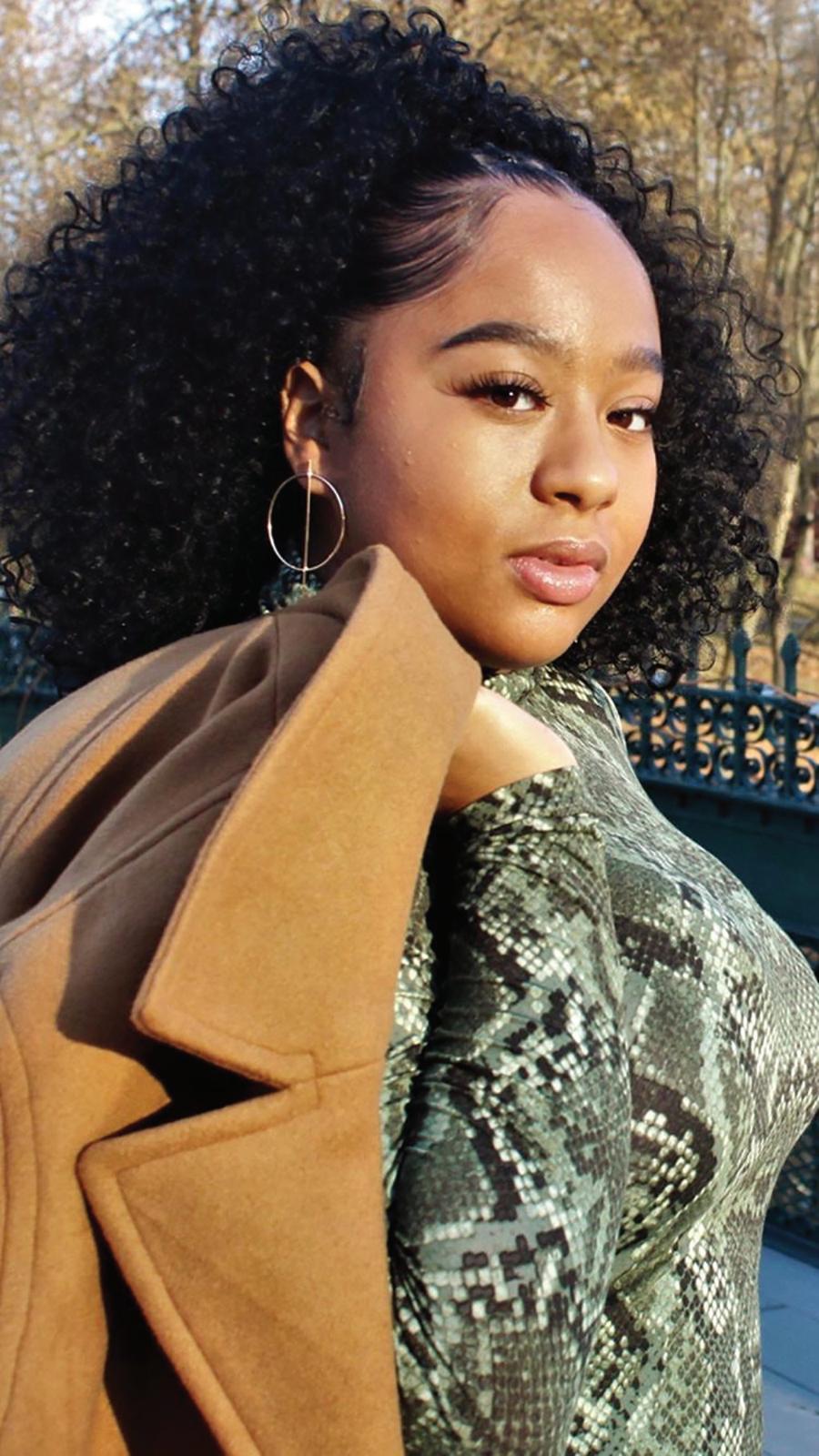
“My undergraduate research project has definitely enhanced my academic and overall experience at The College of Saint Rose. It has allowed me to expand the knowledge of obesity prejudice and has led to some important findings. It has also allowed me to meet some great new people and make connections and friends that will last a lifetime. Winning a research award allows me to share the findings of the project with a larger audience.”
MATTHEW GERSON ’23 Psychology student
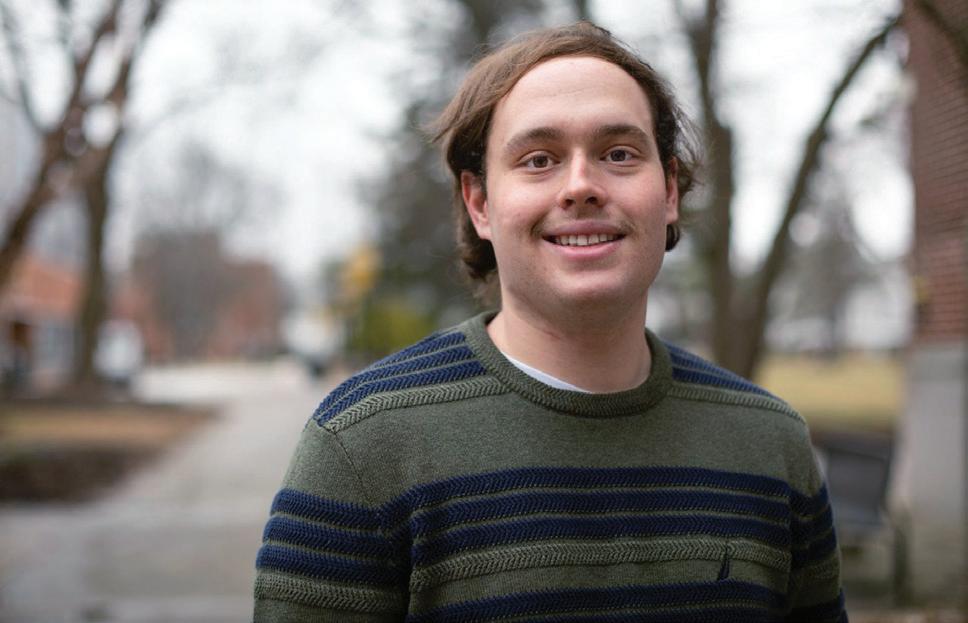
Winner of the 2022 Psi Chi International Honor Society Research Award
Humblebrags
Top 5 producer in the nation of bachelor’s degree grads in forensic psychology.
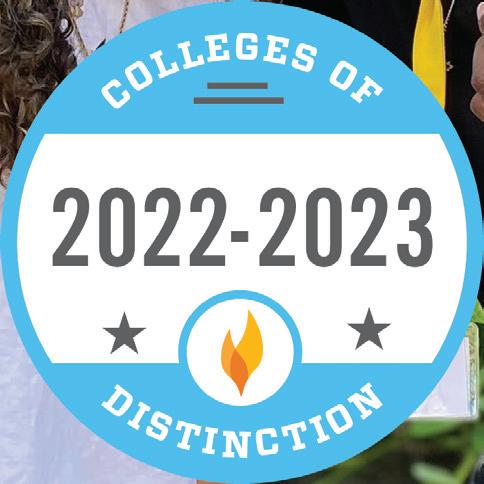
9 psychology concentrations and an accelerated honors program in psychology. 2 dedicated forensic psychology professors.
100% of our social work faculty are licensed, practicing social workers.
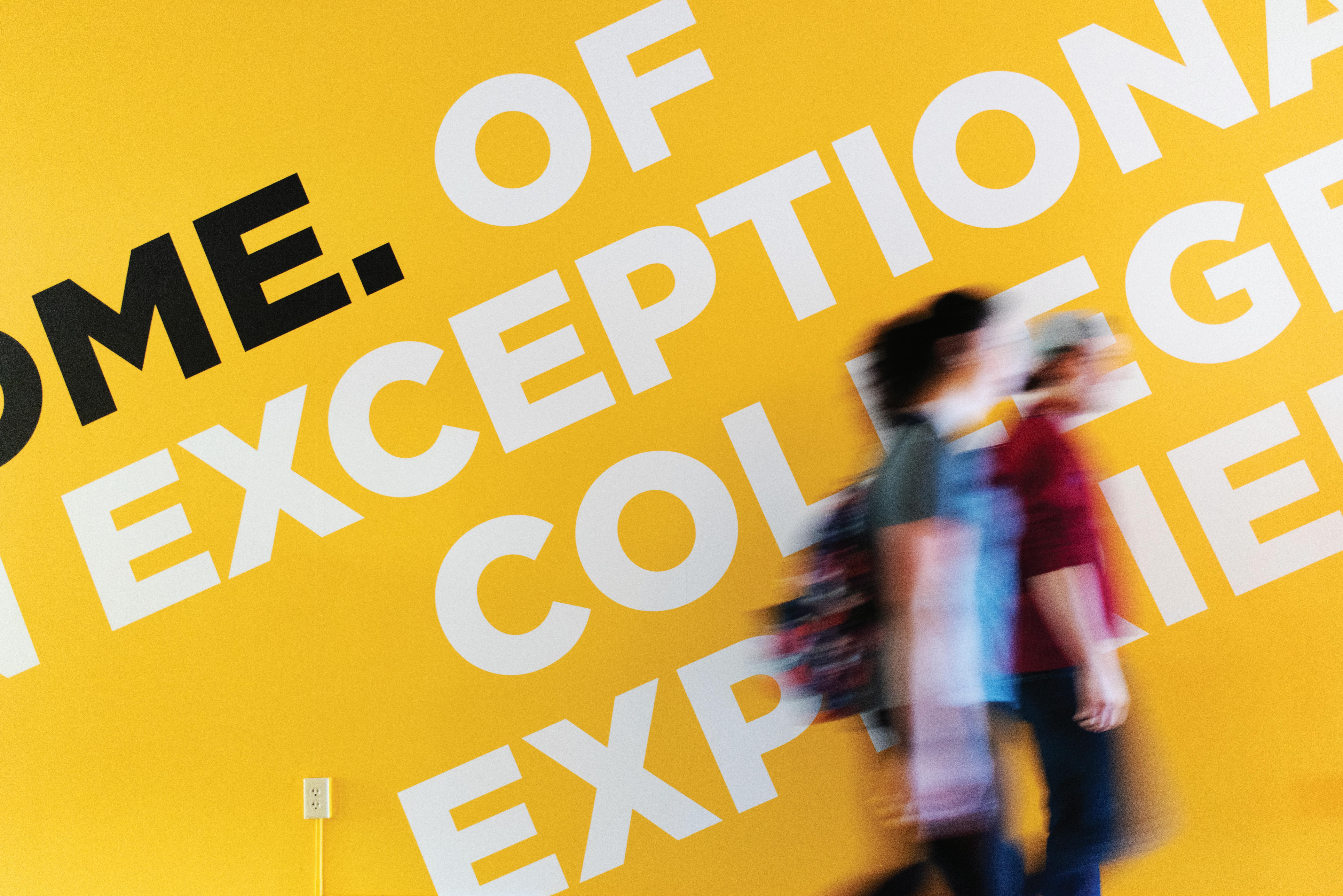
Student Spotlight
The College of Saint Rose
THE HEART OF OUR SOCIAL WORK PROGRAM
• We have a 100% employment rate within three months of graduation.
• Program graduates have a 100% acceptance rate to graduate schools and doctoral programs.
• Unlike other schools, every member of our social work faculty holds a social work license and is actively practicing in the field.
• We are a Council on Social Work Education (CSWE)-accredited program, which provides our graduates with advanced standing. That means they will only need to complete one year of Master of Social Work (MSW) studies in graduate school, no matter which MSW program they attend.
• Our program includes diverse coursework in political science, sociology, and biology, as well as opportunities for Theory in Action learning by working in a variety of community settings.
• We partner with local community colleges to provide 2+2 and 2+2+1 options.
• We require 120 hours of internship fieldwork in the third year and a full-year internship of 400 hours during the fourth year because we believe real-world practice is essential to a deeper understanding of classroom content and makes you a better social worker. And because we have an extensive network of Saint Rose social work alumni, we’re able to help you secure your fieldwork placements.
• We offer an accelerated path from bachelor’s degree to master’s degree, so students going straight through on a full-time schedule will complete their Bachelor of Social Work (BSW) and Master of Science in Social Work (MSSW) at Saint Rose in five years.
• We view social work as an integrated continuum, rather than as a series of silos. We focus on well-being and prevention across five essential domains: Spiritual, Social/Environmental, Emotional/Psychological, Physical, and Economic.
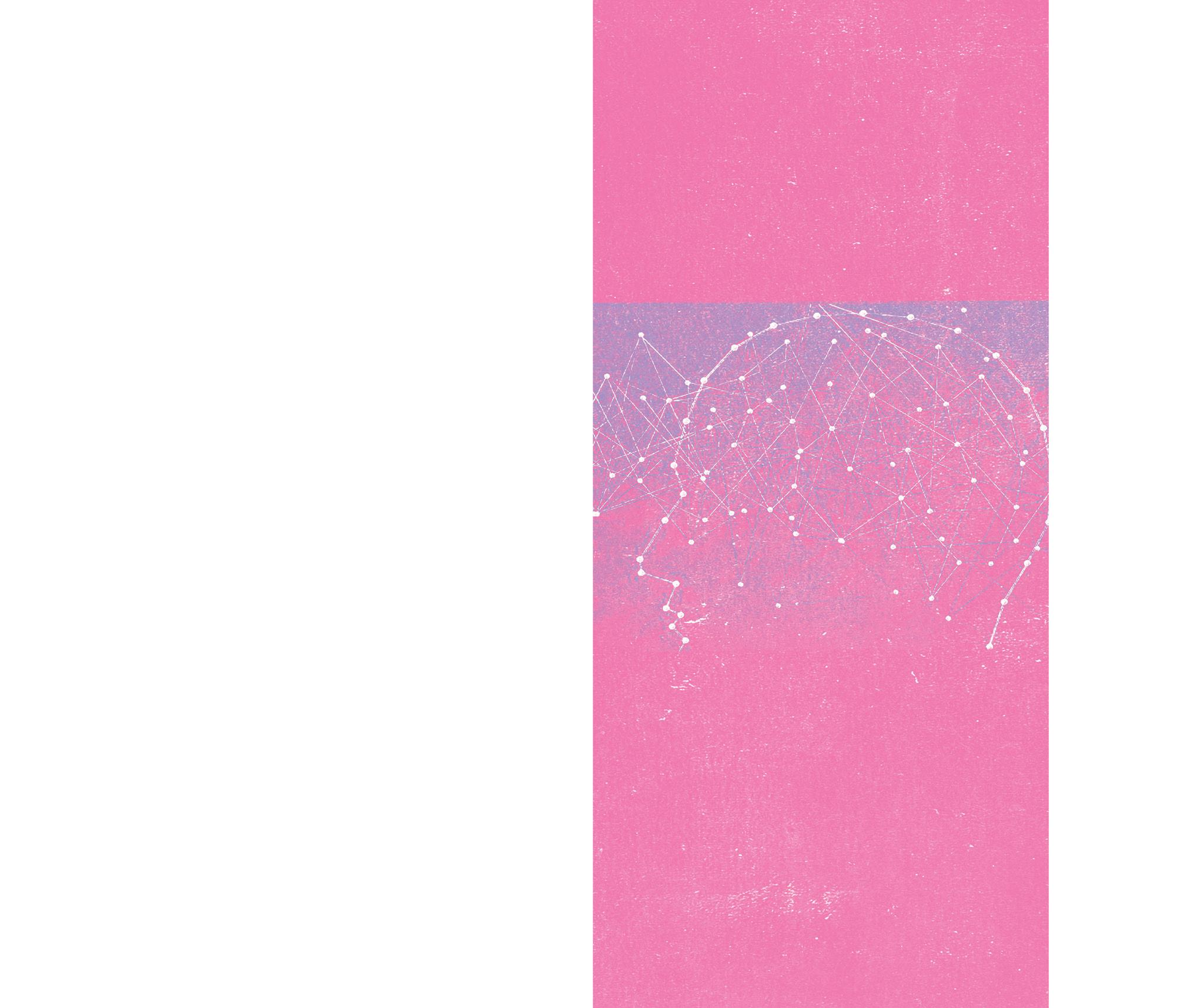
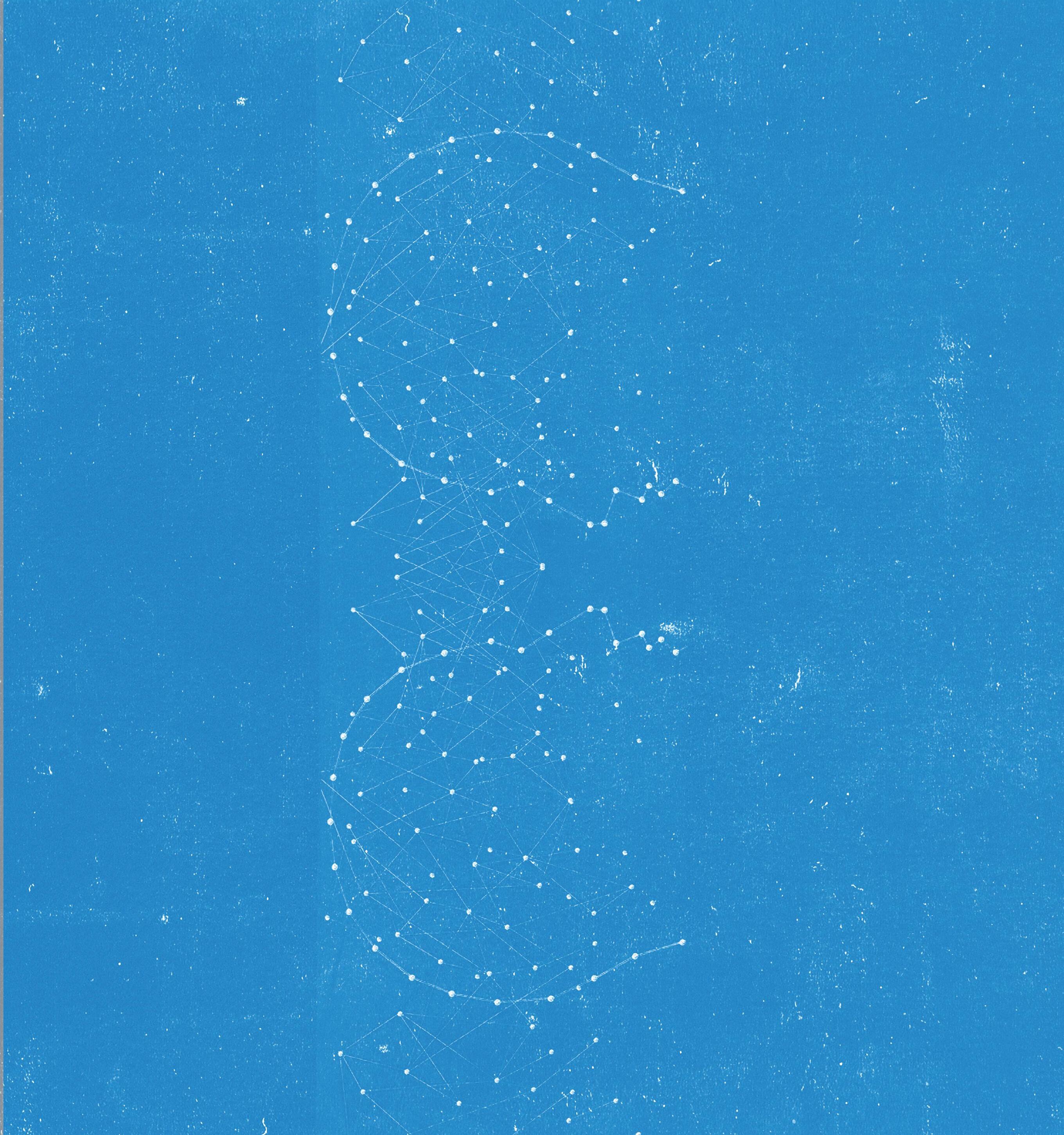
ANALYZING OUR
Majors PSYCHOLOGY PROGRAM
• Choose from either a BS or BA degree, depending on your career and graduate school goals. The 52-credit BS degree is more intense, setting you up for success in grad school and beyond. If you do not have plans to continue your education, but are interested in studying psychology, our 34-credit BA program is the right fit for you.
• Focus your BS degree with one of these concentrations: communications sciences and disorders, school psychology, clinical/counseling psychology, social/personality psychology, industrial and organizational psychology, behavioral neuroscience, health psychology, human development, and the William J. Hagan Research Honors Concentration. Knowing how to do empirical research is important to your studies in this program, so we require students to conduct at least one independent research project. This research creates the foundation for your graduate studies and leads to exciting opportunities, such as presenting your findings at the Eastern Psychological Association (EPA) conference or getting published in a variety of research journals.
• Join PSI CHI, the international honor society in psychology, and gain leadership skills and networking opportunities.
• Traditional first-year psychology majors take a First-Year Seminar in Psychology during their first semester. They read and discuss interesting and often controversial topics in psychology while adjusting to college and learning more about the field and career options. Students in the class are taught by their faculty advisor, so they get to know their mentor, who will guide them throughout their undergraduate program.
• Earn your advanced degree and save time with our Accelerated Psychology Honors Program: Students who qualify for this program complete their BS in Psychology in just three years. Students benefit by taking honors psychology sections of their core requirements, being mentored by a dedicated honors faculty advisor, and participating in College and community service activities. In the first semester of their third year, they apply for graduate admission to one of the eligible graduate programs, and if accepted, can earn both degrees in a compressed period of time compared to the traditional route. Time to completion will vary by program:
- MSED in Clinical Mental Health Counseling, two additional years
- MSED in Communication Sciences and Disorders, 18 additional months
- MS in Computer Science, one additional year
- MSED in Educational Psychology, one additional year
- MBA, one additional year
- MSED in School Counseling, two additional years
- MSED in School Psychology, three additional years
- MS in Social Work, two additional years
GET READY TO WORK with this 73-credit major, which closely resembles a double major in psychology and criminal justice, and make the most of your investment.
CHOOSE FROM either a general degree in forensic psychology or a concentration in one of four areas: clinical, legal, law enforcement, or social/cognitive/developmental.
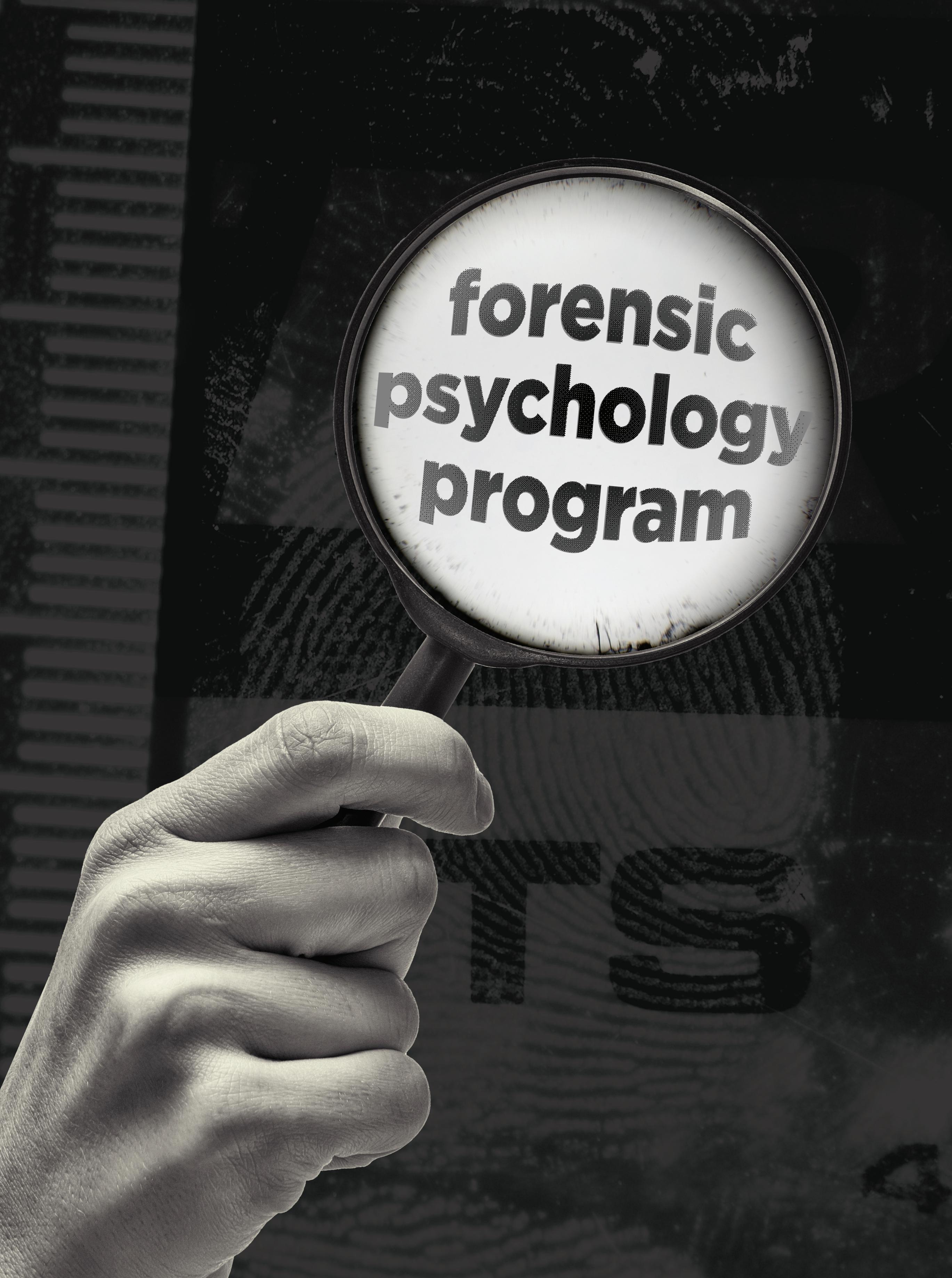
CLINICAL CONCENTRATION
Opt for more coursework in psychology, providing optimal preparation for a clinical or counseling graduate degree.
LEGAL CONCENTRATION
Focus on law, preparing you for the intricacies of law school.
LAW ENFORCEMENT CONCENTRATION
Concentrate more on criminal justice courses that prepare you for a career in law enforcement or corrections.
SOCIAL/COGNITIVE/ DEVELOPMENTAL CONCENTRATION
Take courses in these specific areas to prepare for a research career examining important psychological variables in forensic psychology.
TAKE
ADVANTAGE OF SAINT ROSE’S
LOCATION in New York State’s Capital Region, which provides ample opportunities for discipline-specific internships, especially in the field of forensic psychology, such as at the FBI or the Capital District Psychiatric Center.
PUT O U R
N G G L A S S
U N D E R A MAGNIFYI
GAIN THE OPPORTUNITY to intern at the College’s Cold Case Analysis Center, which is the only center of its kind in New York State, and work on actual cold cases alongside law enforcement agencies.
PARTICIPATE IN UNDERGRADUATE RESEARCH and explore topics and themes that interest you. This research creates the foundation for your graduate studies and leads to exciting opportunities, such as presenting your findings at the Eastern Psychological Association (EPA) conference or getting published in a variety of research journals.
BE ONE OF A KIND, as Saint Rose offers the only forensic psychology major that includes designated forensic psychology courses at both the introductory and advanced level – Child and Adolescent Forensic Psychology, Forensic Mental Health Law, and Forensic Psychology Capstone.
FORENSIC PSYCH
MAJORS MAY ALSO JOIN PSI CHI
International Honor Society in Psychology and Phi Alpha Delta International Fraternity and Honor Society in Law
The College of Saint Rose
Find out what our psychology, forensic psychology, and social work alumni are up to
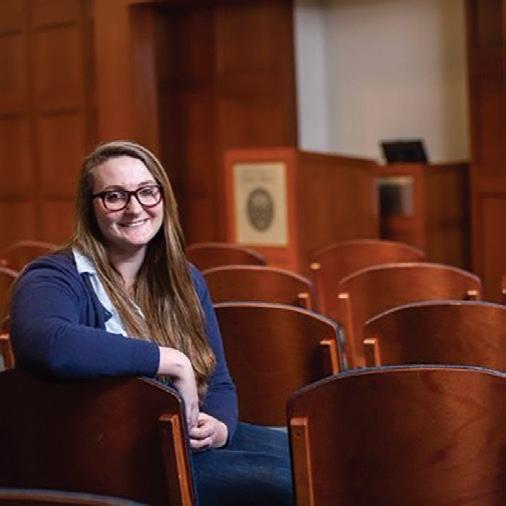



“At Saint Rose, I developed the skills, confidence, and character to achieve my goal in becoming an industrial/ organizational psychology practitioner.”
“At Saint Rose, I was challenged by my professors to ask questions that mattered and utilize reliable ways to find answers. These are skills that I use every single day in my career as an attorney.”
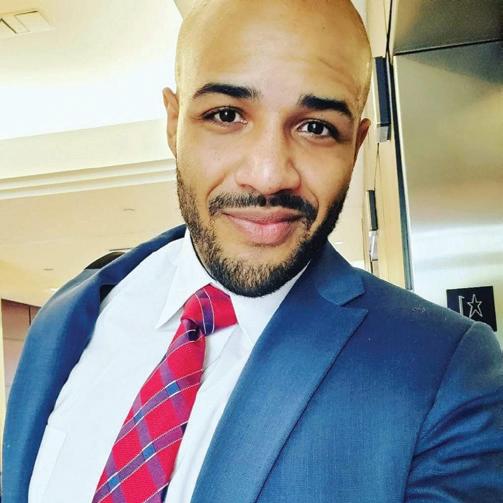
“Before I entered the BSW program at Saint Rose, like many undergraduate students, I was feeling unsure about what I wanted to do with the rest of my life. However, with the incredible guidance, leadership, passion, and dedication of the amazing faculty in my program, this was short-lived. I am forever grateful for the ways in which my worldview was altered for the better, for the ways in which I was challenged to think critically about mental health, policies, and systemic oppression, and for the lifelong relationships that were cultivated throughout my time in this program.”
ALAYNA SHAW ’13, MSW AmeriCorps program coordinator, Colorado
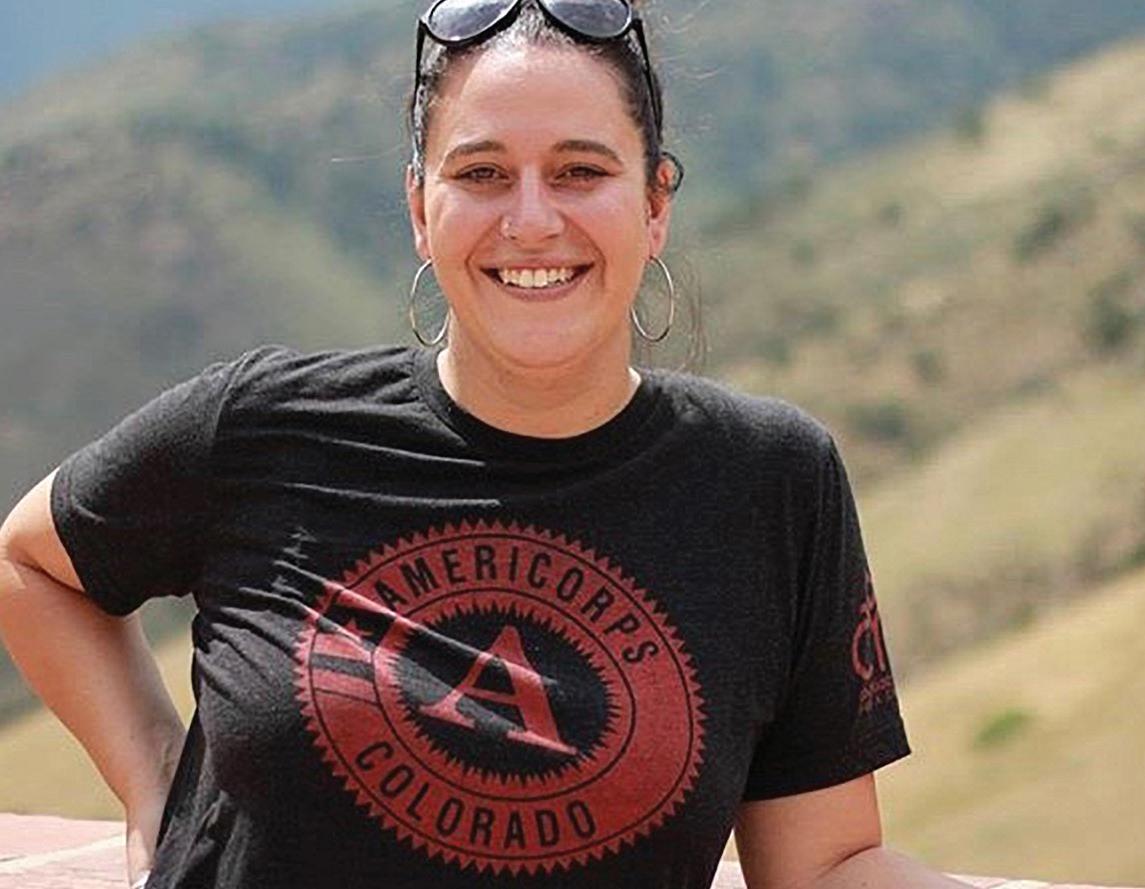 MICHAEL CRUZ ’10 MA, Industrial/Organizational Psychology from Iona College Human resources business partner, Amazon Logistics in Kissimmee, Florida
ALLEE VON STACKELBERG ’16, ESQ. Doctor of Law (J.D., Albany Law School) Senior Law Clerk to the Honorable Laura M. Jordan, Northern District of New York in Albany, New York
MICHAEL CRUZ ’10 MA, Industrial/Organizational Psychology from Iona College Human resources business partner, Amazon Logistics in Kissimmee, Florida
ALLEE VON STACKELBERG ’16, ESQ. Doctor of Law (J.D., Albany Law School) Senior Law Clerk to the Honorable Laura M. Jordan, Northern District of New York in Albany, New York
www.strose.edu
Youth for A Change
Dr. Joseph A. Twumasi-Ankrah, LMSW, assistant professor of social work
Joined Saint Rose faculty: 2021
Teaches: Social work research methods, social work in a school setting, introduction to social work, and field practicum courses.
Research specialty: As a licensed MSW with 14 years of practice experience addressing the mental health needs of urban and rural at-risk populations, his teaching/research interests focus on diversity, child welfare, social justice, and school social work.
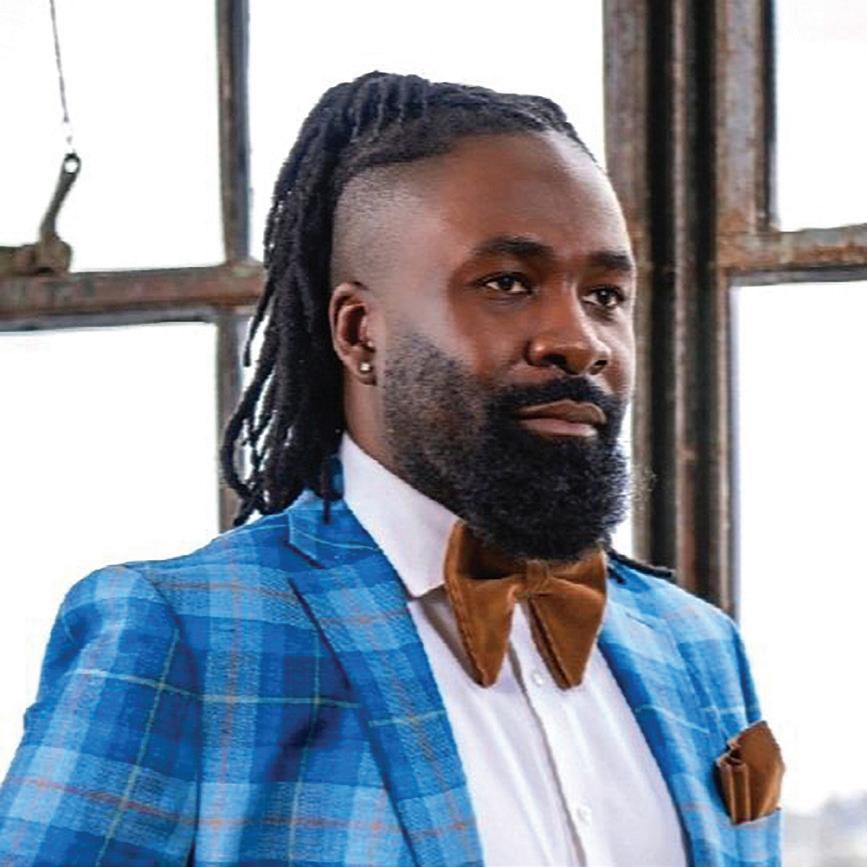
Dr. Lillian A. Rodriguez Steen, assistant professor of forensic psychology
Joined Saint Rose faculty: 2022
Teaches: Child and adolescent forensic psychology, research methods and statistics, introductory and advanced forensic psychology, and general psychology.
Research specialty: She examines the intersection of developmental and forensic psychology, youth decision making, childhood eyewitness reports, and interview processes as they relate to children and juveniles.
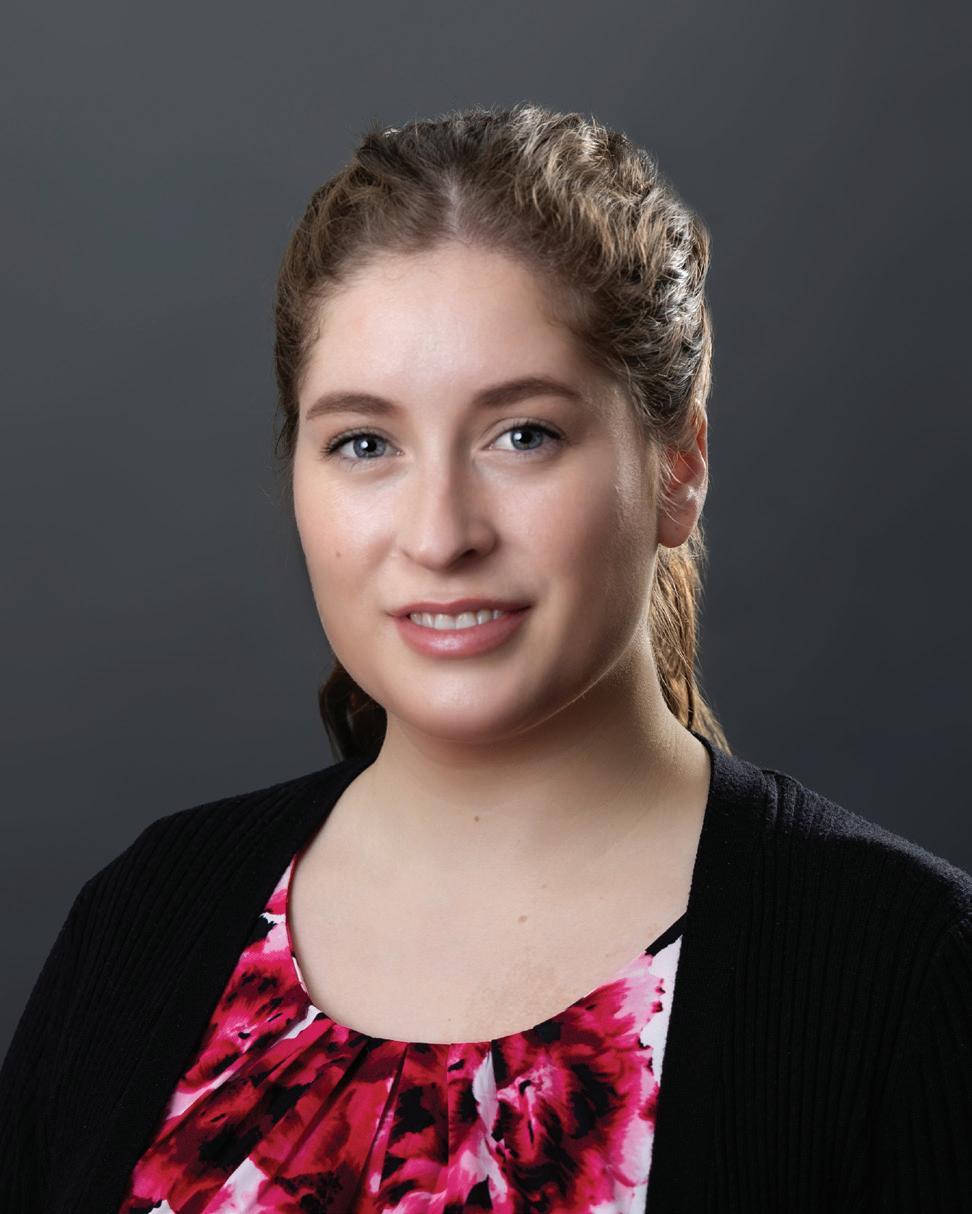
Dr. Ross Krawczyk, associate professor of psychology and a licensed clinical psychologist in private practice
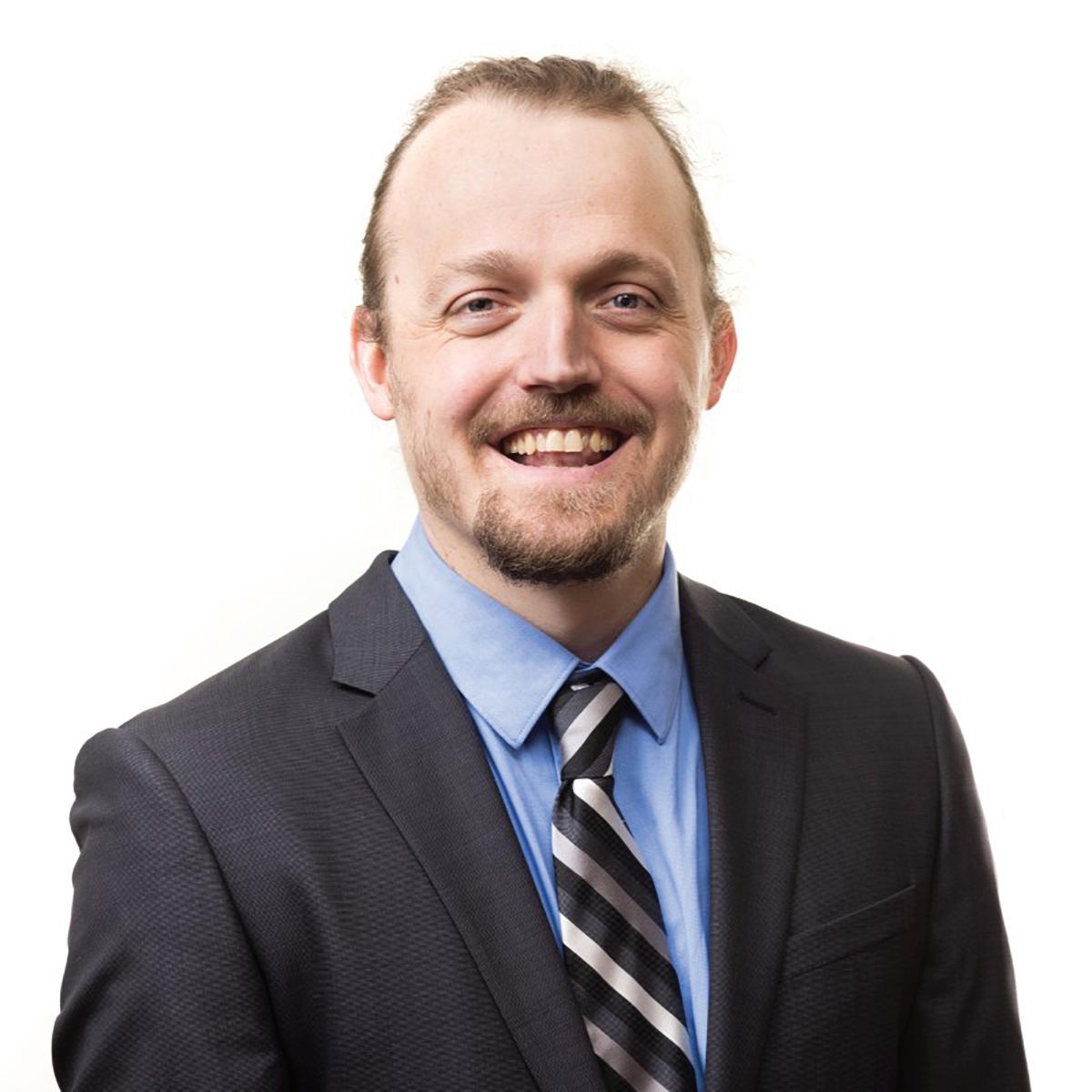
Joined Saint Rose faculty: 2013 Teaches: Abnormal psychology, clinical psychology, psychometrics, and research methods.
Research specialty: He’s a published and often-quoted expert on the obesity epidemic, eating and weight-related treatments, and body image.
Featured Faculty The College of
Saint Rose
The only center of its kind in New York State and one of six nationally, our Cold Case Analysis Center (CCAC) allows selected students from our criminal justice, forensic science, and forensic psychology degree programs to work on true cold cases, addressing a mounting problem in the criminal justice system. All of this is done under the guidance of our expert faculty and in partnership with local law enforcement agencies.
HOW THE COLD CASE ANALYSIS CENTER WORKS
You’ll receive training and experience in unsolved case analysis while forming relationships with community agencies and contributing resources to local and state law enforcement to address their cold case initiatives (imagine putting THAT on your resume). And you’ll gain access to the same fi les that law enforcement agencies have access to. You’ll receive an education — outside of the classroom — in forensic science, the law, and criminal investigation techniques. Additionally, you will learn investigation skills and become better acquainted with the cold case problem and its challenges to professionals.
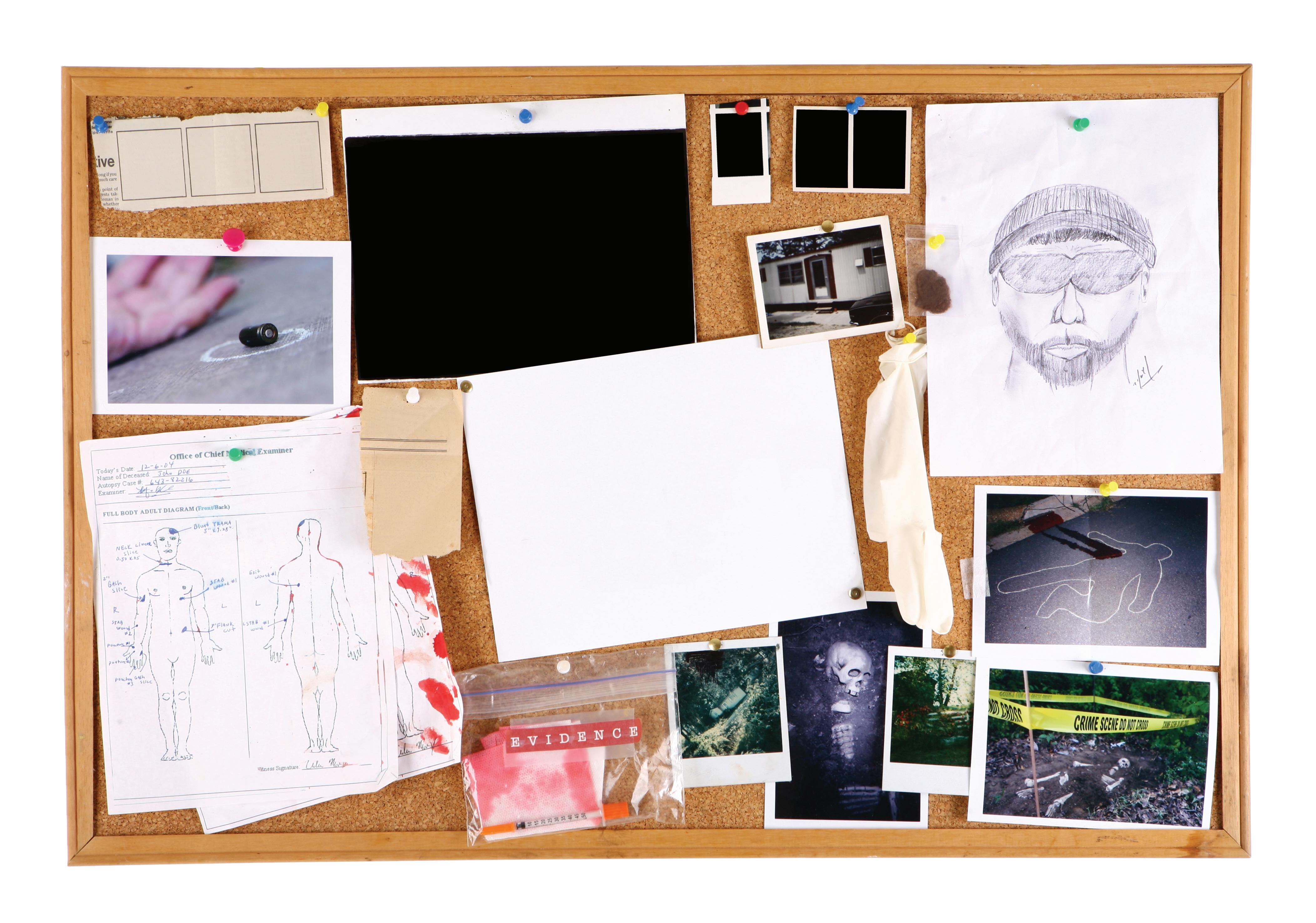
The National Missing and Unidentified Person System estimates that an average of 2,000 missing person cases go unsolved each year. Meet our faculty advisors
Director,
Case Analysis Center
518.485.3767
in Action COLD CASE ANALYSIS CENTER
Dr. Christina Lane
Cold
Lanec@strose.edu
Dr. Christopher Kunkle Advisor, Cold Case Analysis Center Kunklec@strose.edu Theory
Saint Rose student assists law enforcement in cold cases

“The faculty at Saint Rose have helped me find so many internships and opportunities in the field, especially in the Cold Case Analysis Center. It’s such a unique program because I can apply what I’ve learned in class to real-life crime. I work directly with local police departments, the FBI, and forensic field specialists on actual missing persons and murder cases. I get to see evidence and photos and visit crime scenes. These are field experiences I wouldn’t get sitting in a classroom.”
“I’ve been working with a group on the Blackburn murder case from 1964, and we’re still finding new things. For example, we have identified a few local suspects. If we can find male descendants of these suspects, our best bet is to use DNA and match it to the murder weapon to solve the case. I would love to give the victim’s family members closure and peace of mind.”

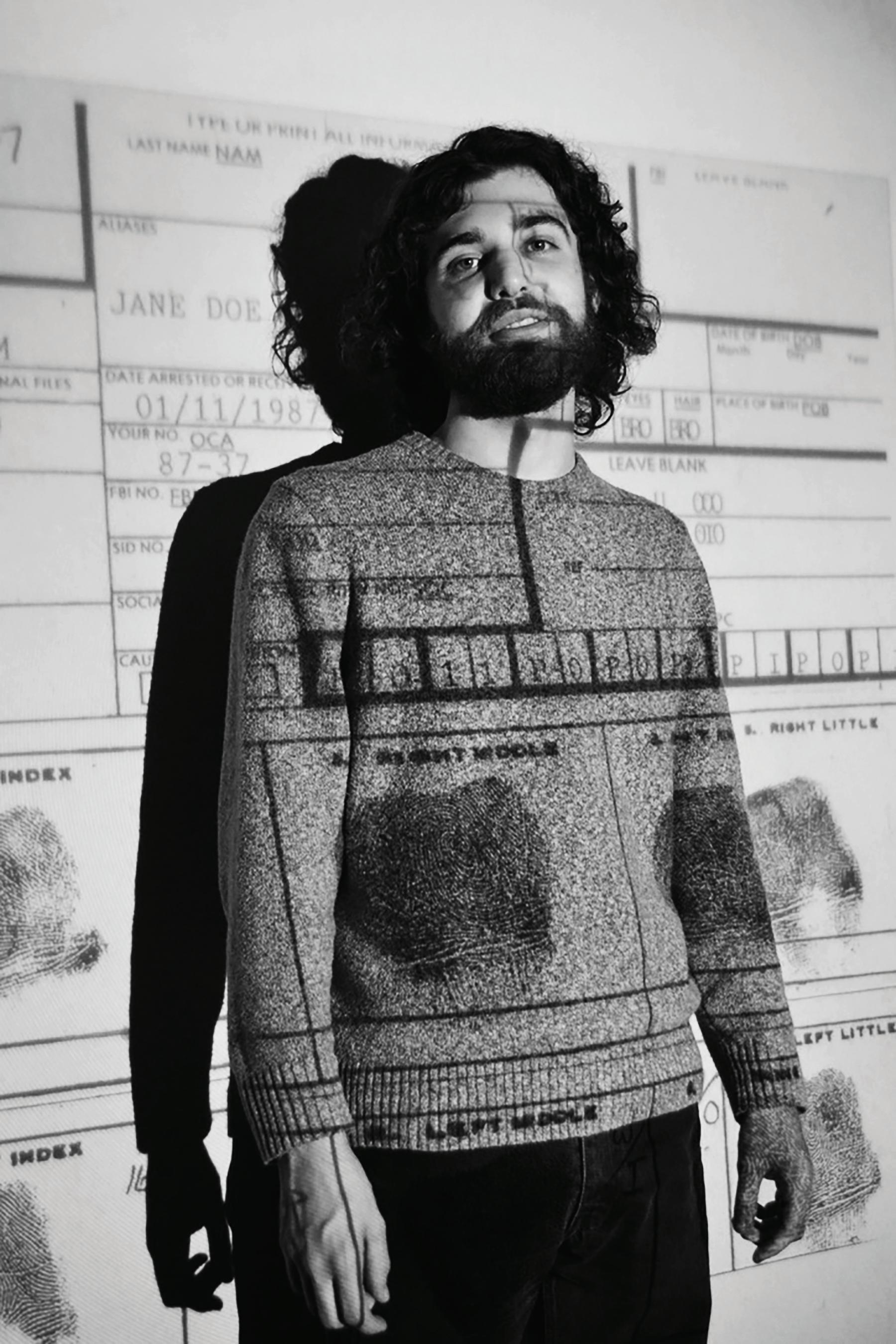
College of Saint Rose Caleb Linder ’23
psychology
The
Forensic


Policy,
Research,
UNDERGRADUATE RESEARCH www.strose.edu
Behavioral Neuroscience, Behavioural Brain
and the Saint Rose Undergraduate Research Journal.
Exploring the
Psychology of Love
Dr. Ann Zak is a psychology professor at Saint Rose, who teaches this popular class and others. But what is this class about? What do students learn? We asked her a few questions.
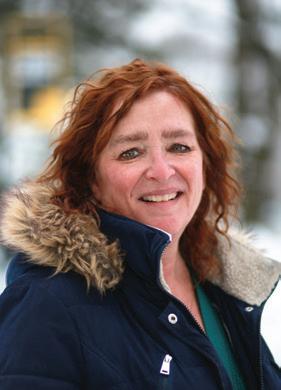
What is “psychology of love?”
Psychology of Love introduces students to the psychological study of loving relationships. From a developmental perspective, we examine contemporary theories and empirical evidence on young adult relationships (the initiation and casual-dating stage), love and relationship development (the in-love/serious-dating stage), premarital relationship decay and termination, and development of stable marital relationships. By studying the development of love, we can learn to predict and understand human behavior in romantic relationships.
What do students learn in your Psychology of Love class? After successful completion of this course, students are able to demonstrate an understanding of the theoretical perspectives and empirical research that explain romantic relationships from the initiation stage to marriage; examine issues regarding loving behavior with classmates; explain research and opinions clearly and stimulate others to share their opinions; investigate love issues in a social situation; conduct an interview of a married couple and critically analyze data; and apply knowledge of the five developmental stages of romantic relationships to current feature films and determine whether or not the main characters have “successfully” completed each stage in detail.
How can students apply your teachings to their career goals or personal life? Several students have indicated that they want to pursue a career in marital and family counseling, and the course certainly serves as a starting block for that. The discussion topics and podcast reviews can also facilitate personal growth in their romantic relationships.
What makes this class fun or interesting? Nearly everyone wants to fall in love and stay that way. The course helps students explore how to fall in love, how to maintain loving relationships, and how to be successful at loving.
Provide an example assignment for this class: Interview a married couple: First, students choose a married couple to interview and address the following questions in a aper:
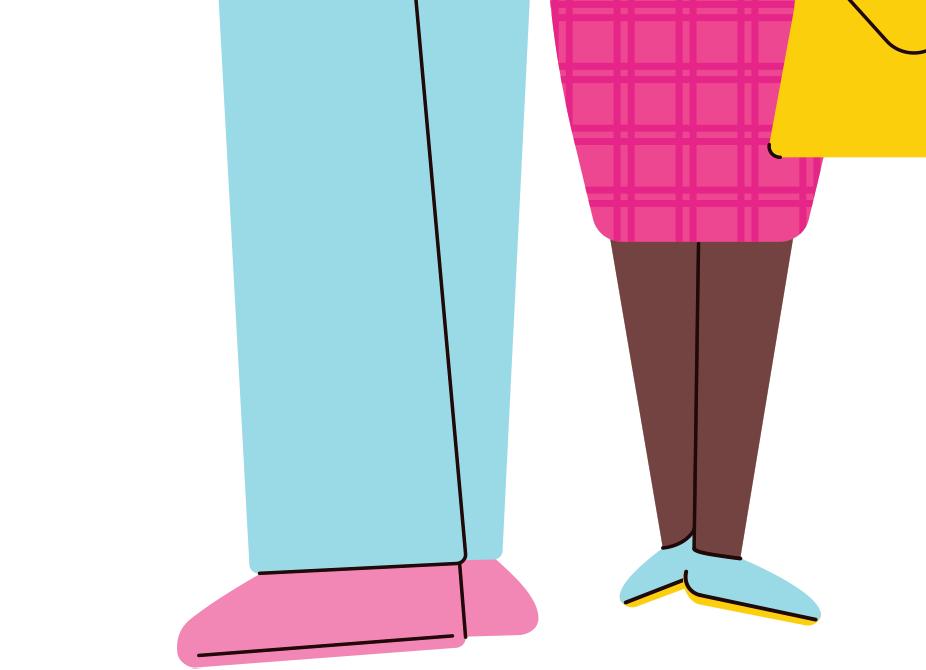
1) Describe the initiation stage for the couple. How did they meet? What attracted them to each other? Include what you’ve learned about familiarity, physical attractiveness, similarity, reciprocal liking, and arousing situations. Support your arguments with examples from your text and course notes. Analyze how they were first attracted to each other (or not). Discuss nonverbal behavior, eye contact, and opening lines during their first date. How do their experiences match what you learned in class about the initiation stage?
2) Ask the couple to describe their marriage now. How do they communicate? What are their goals and dreams? How are they connected to one another? How are they autonomous? How do their experiences hold up to what you learned about communication, connectedness, and autonomy in class? Analyze the self-esteem and power influences as their marriage progressed. Support your arguments with examples from your text and course notes.

3) Ask the couple to describe conflict in their marriage. How do they handle conflict? How does this relate to conflict styles and resolution that you learned in class?
4) Does the couple have children? How have children impacted their marriage? How does this apply to the effects of children on marriage that you learned in class?
5) What are the couple’s secrets to a happy marriage? What have they learned so far? What type of love do they show, based on what you learned in class?
What types of research opportunities can students pursue if interested in the psychology of love or a similar topic? For the past 20 years, I have recruited five or six research assistants to conduct a year-long study on loving relationships. We present our work at the Eastern Psychological Association conference every March. Past projects include evaluating online dating, the effects of friend and family support and opposition on romantic relationships, the role of social media and self-esteem on hook-up culture, and relationship quality for romances initiated both online and offline. Students also conduct research on loving relationships in Research Methods II and Senior Seminar (both required to graduate with a psychology degree).
What do you love about teaching the Psychology of Love class? Absolutely everything! Students get personal with the discussion topics and married couple interviews, so I learn something every semester I teach it.
The College of Saint Rose Love
this class
WHERE ARE YOU IN YOUR PROCESS? Are you already accepted to the College? Deposit today at www.strose.edu/deposit Are you ready to apply? Visit www.strose.edu/apply Do you need to check us out? Schedule a personalized visit today at www.strose.edu/visit CONTACT US! The Undergraduate Admissions Office The College of Saint Rose 432 Western Avenue Albany, NY 12203 Phone: 518.454.5150 Email: Admit@strose.edu Dr. Robert W. Flint Jr. Chair of the departments of psychology and criminal justice, behavior, and law Flintr@strose.edu Maureen Rotondi, MSW, LCSW-R Associate professor of social work, chair and program director rotondim@strose.edu The College of Saint Rose Office of Admissions 432 Western Avenue Albany, NY 12203
















 GLESAIDYS EVE ’23 Forensic psychology student
GLESAIDYS EVE ’23 Forensic psychology student













 MICHAEL CRUZ ’10 MA, Industrial/Organizational Psychology from Iona College Human resources business partner, Amazon Logistics in Kissimmee, Florida
ALLEE VON STACKELBERG ’16, ESQ. Doctor of Law (J.D., Albany Law School) Senior Law Clerk to the Honorable Laura M. Jordan, Northern District of New York in Albany, New York
MICHAEL CRUZ ’10 MA, Industrial/Organizational Psychology from Iona College Human resources business partner, Amazon Logistics in Kissimmee, Florida
ALLEE VON STACKELBERG ’16, ESQ. Doctor of Law (J.D., Albany Law School) Senior Law Clerk to the Honorable Laura M. Jordan, Northern District of New York in Albany, New York









